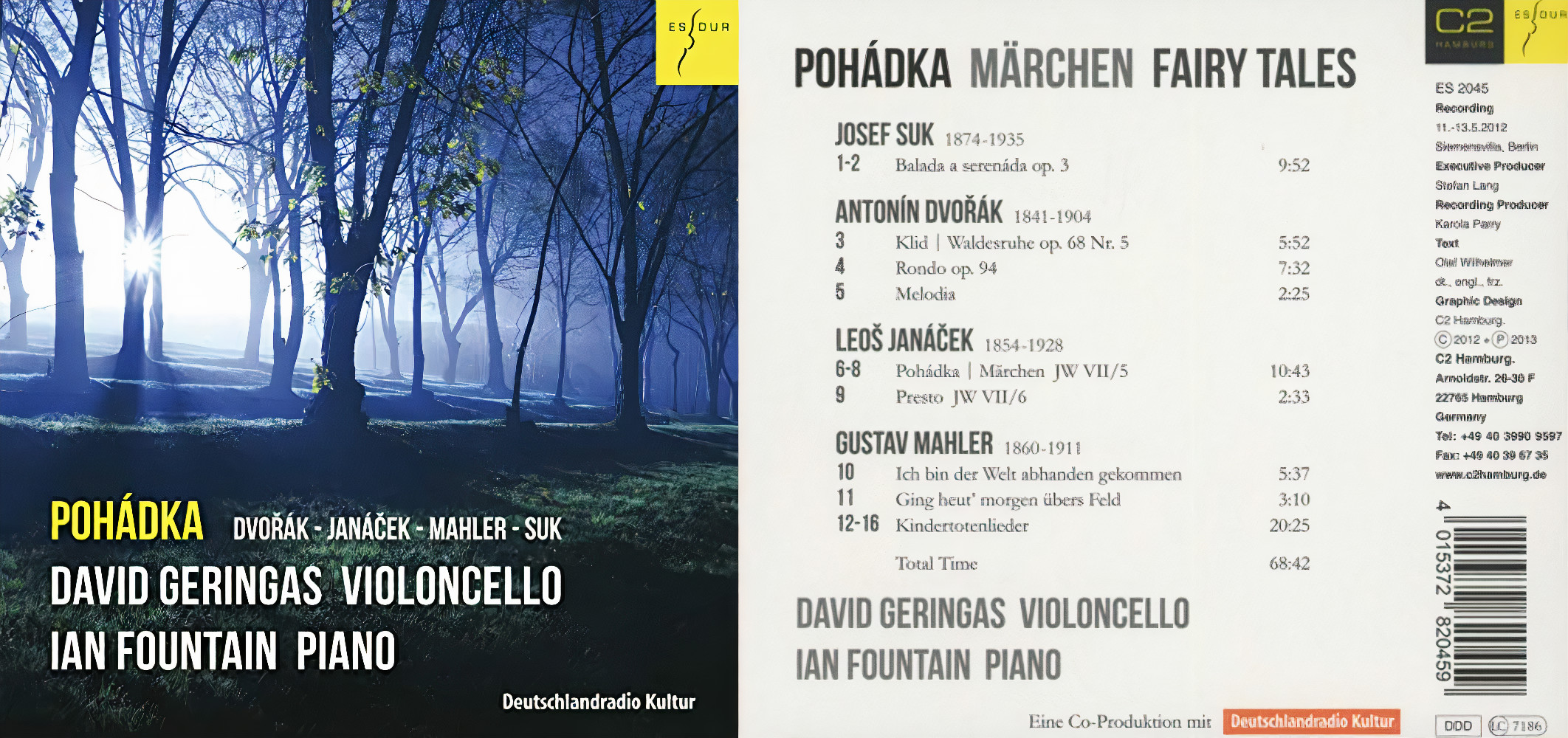
Pohádka: Music for Cello and Piano Review by Gramophone

The principal draw here is David Geringas’s reflective and deeply affecting version of the third of Mahler’s Rückert-Lieder, ‘Ich bin der Welt abhanden gekommen’ (I am lost to the world), as inwardly probing a rendition as any involving the human voice, the sensitively spun cello implying every last vestige of withdrawn emotion implied in Rückert’s poem. A beautiful cello sound too, seamlessly bowed and velvet in texture, with perfectly judged support from pianist Ian Fountain. Geringas also plays the complete Kindertotenlieder in Viktor Derevianko’s cello transcription, which doesn’t work quite so well, principally because, unlike Songs on the Death of Children, ‘Ich bin der Welt abhanden gekommen’ weaves its magic with a mere prompt from just the title. Those opening words are really critical, and the music alone can do the rest. By contrast, Kindertotenlieder cries out for its text, excepting perhaps ‘Oft denk’ ich, sie sind nur ausgegangen’ (I often think they have only just gone out…), which, in purely musical terms, works well enough as an instrumental solo. So does ‘Ging heut’ morgen übers Feld’ (I went this morning over the field), understandably so, as it fits both its parent Lieder eines fahrenden Gesellen and the first movement of the First Symphony that grew out of it.
Geringas’s programme sets off to Josef Suk’s Ballade and Serenade, music that is by turns passionate and playful, proceeds via Suk’s father-in-law Dvořák (the poetic Silent Woods, the lilting Rondo and that lyrical perennial ‘Songs my mother taught me’) to the teasing antics of the hugely imaginative Pohádka by Janáček. All the performances are expertly dispatched from a technical standpoint, as well as musically satisfying and well recorded; and if the programme context appeals, I can’t imagine you being disappointed.

